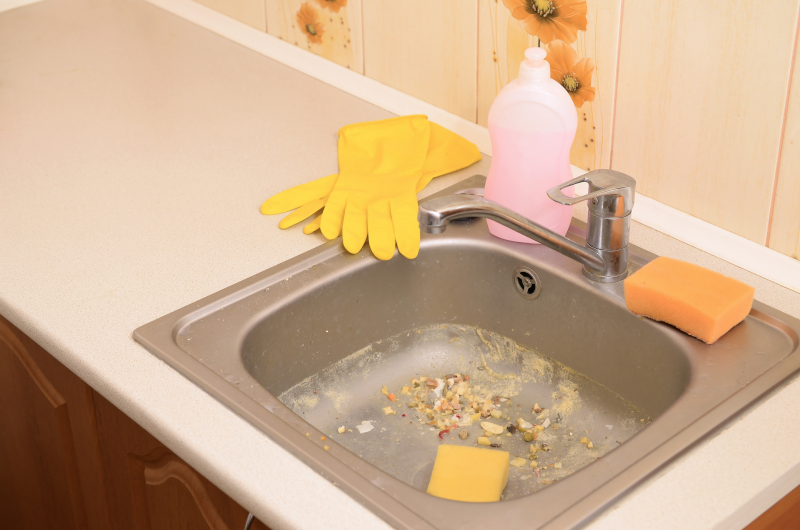Cooking at home is one of life’s great joys. It brings the family together, provides nutrition, and even entertainment as there are an endless amount of new recipes to try. Keep in mind though, cooking can take a toll on your plumbing – most specifically, the effects of fat, oil and grease.
Commercial kitchens and restaurants are required to have grease traps that help prevent fats, oils and grease from heading to the sewer. However, homes do not have their requirements, even when a great deal of cooking can occur in the home. Commonly, inexperienced cooks will simply take cooking by-products, such as drained fat or frying oil and pour it down the kitchen sink drain. This is a mistake! Let’s do an experiment: next time you drain fat from cooked hamburger, collect the hot liquid fat in a durable ceramic pan and let it sit at room temperature for a few hours. When you come back to check on it, you’ll see that it has solidified into a pale white solid. This is exactly what would happen inside your drains! Maybe if you dispose of it down the drain three, four, or even ten times the building won’t be enough to cause issues. Over time, though, it can severely impact your sink’s and entire home’s ability to dispose of waste water.
Even if you can clear the blockages out that are close to the surface, blocks of oil and grease can solidify at the main drain pipe. This clog of solid material can catch other sediment such as hair, debris, and other material, exacerbating the problem. While clearing out a clog in your sink may be in the range of a hundred dollars, severe problems with blocking sewer lines can result in thousands of dollars of repairs – not to mention money you might owe to the city for it’s damaged drain pipes.
So next time you cook, keep an eye out for any fat, oil, or grease that may be accidentally headed down the drain. You may save yourself a fortune!

